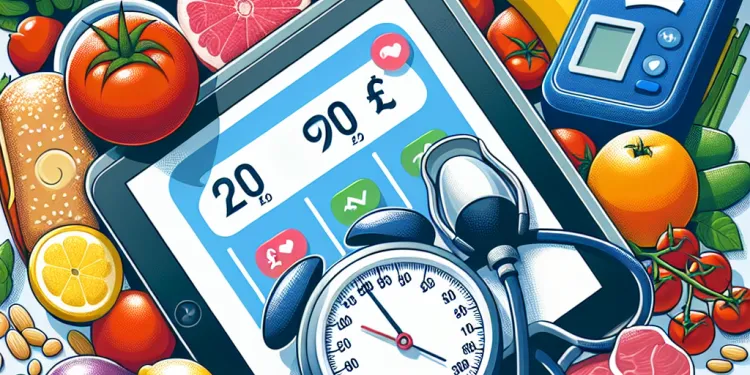
Find Help
More Items From Ergsy search
-
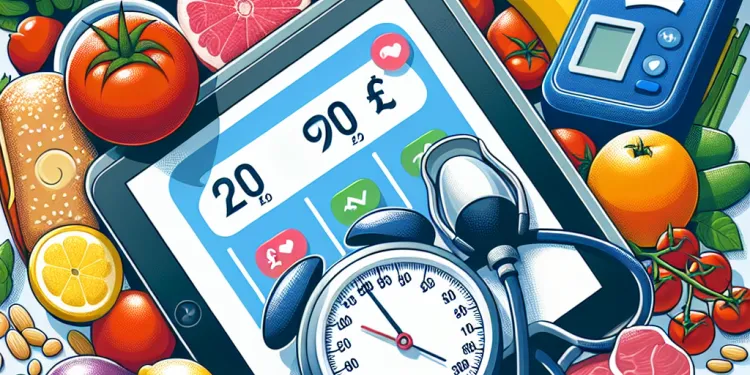
How does diet affect blood pressure?
Relevance: 100%
-
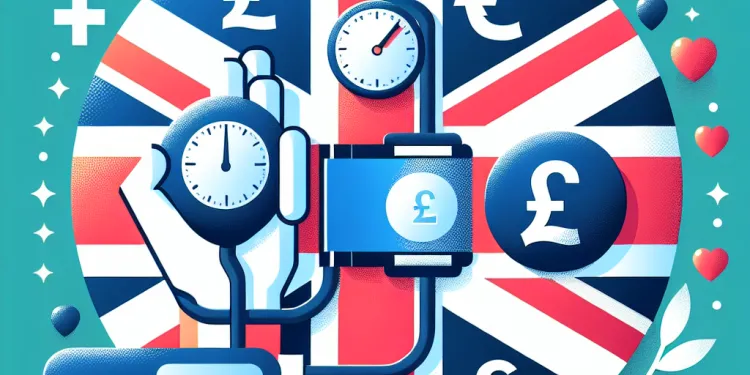
What is high blood pressure?
Relevance: 83%
-
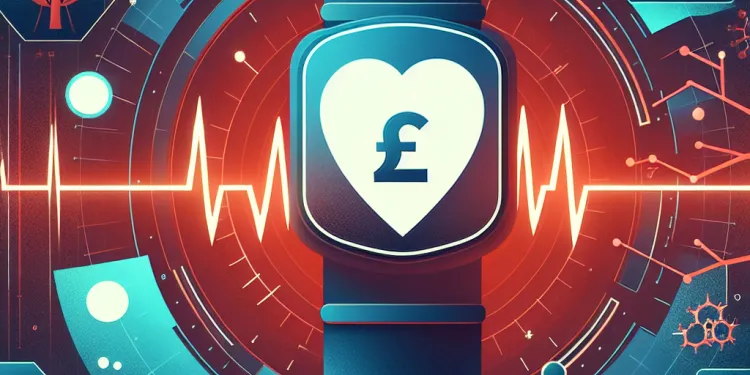
What causes high blood pressure?
Relevance: 80%
-
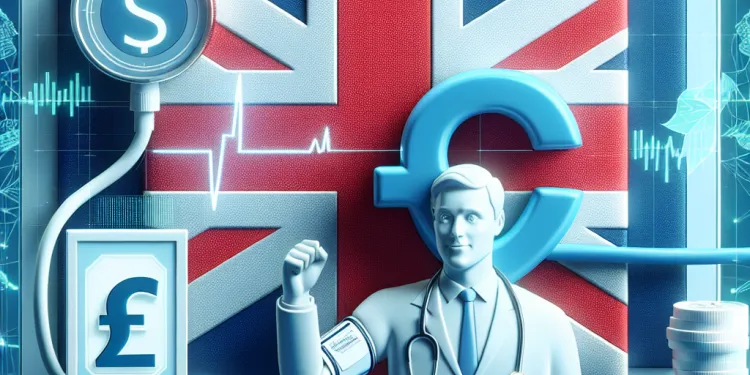
Can high blood pressure be prevented?
Relevance: 80%
-
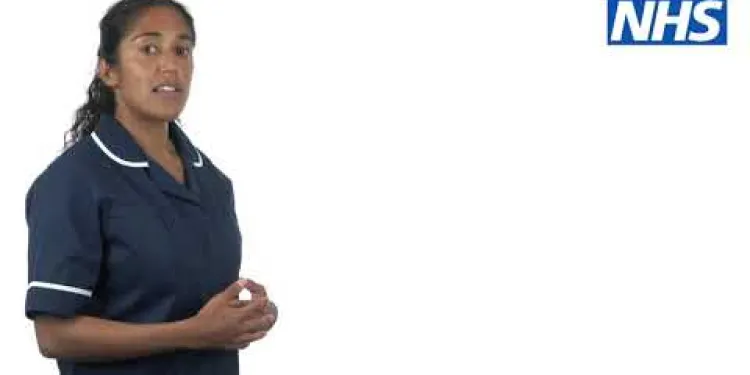
Seven Reaasons For Measuring blood pressure
Relevance: 78%
-
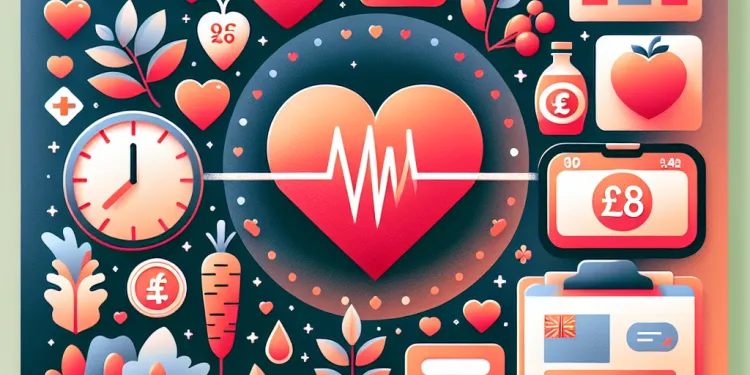
What lifestyle changes can lower blood pressure?
Relevance: 75%
-
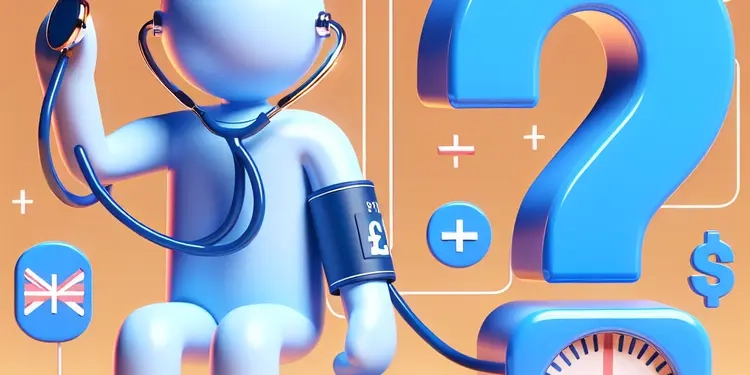
Should I test my child for high blood pressure?
Relevance: 75%
-
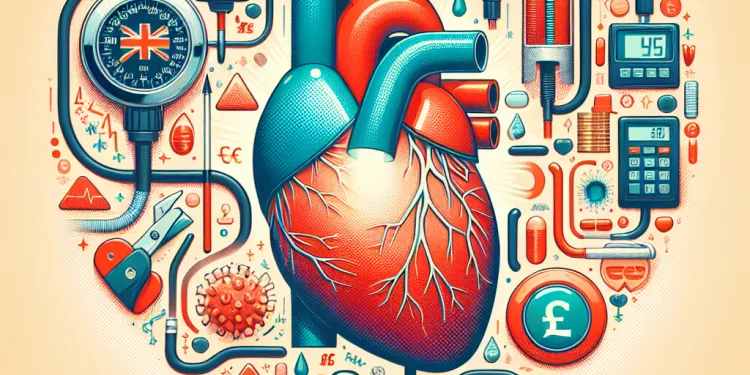
How can high blood pressure be treated?
Relevance: 75%
-
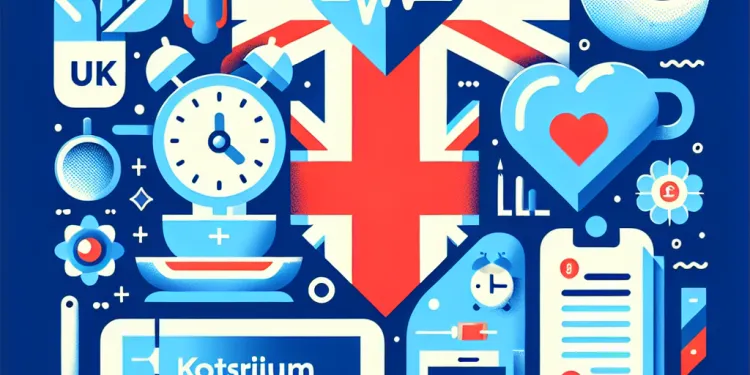
What is the role of potassium in managing blood pressure?
Relevance: 74%
-
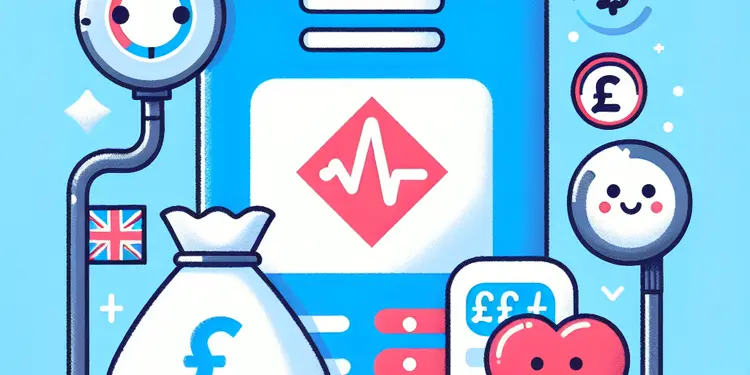
How does salt impact blood pressure?
Relevance: 74%
-
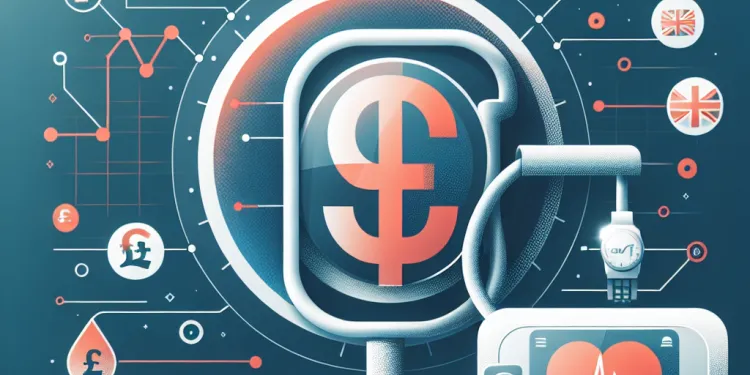
How often should I check my blood pressure?
Relevance: 73%
-
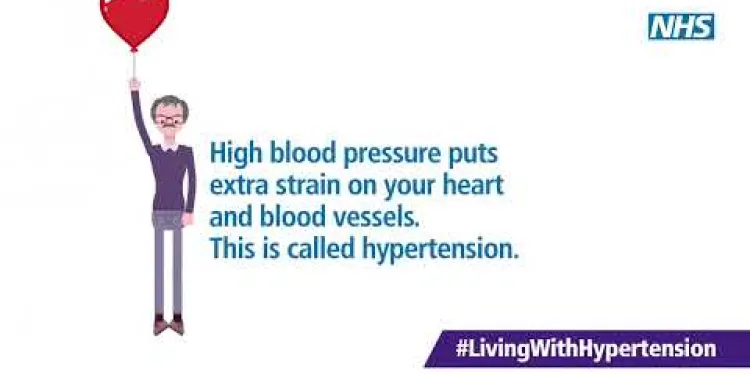
Blood pressure too high? Living with hypertension animation
Relevance: 72%
-
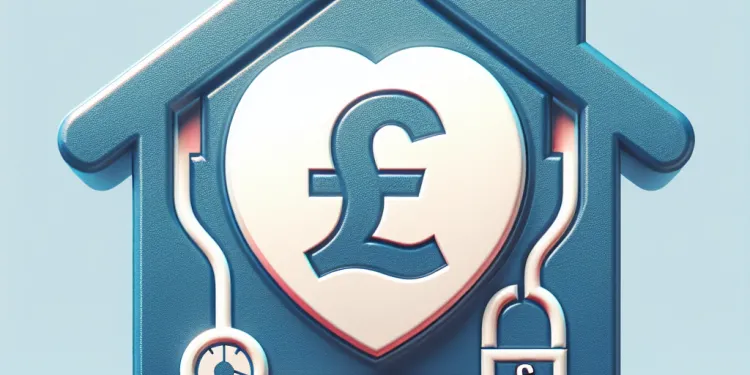
What are the risks of having high blood pressure?
Relevance: 72%
-
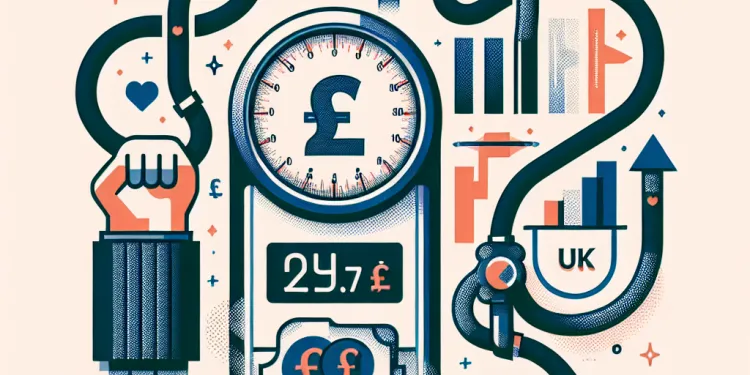
How is high blood pressure diagnosed?
Relevance: 72%
-
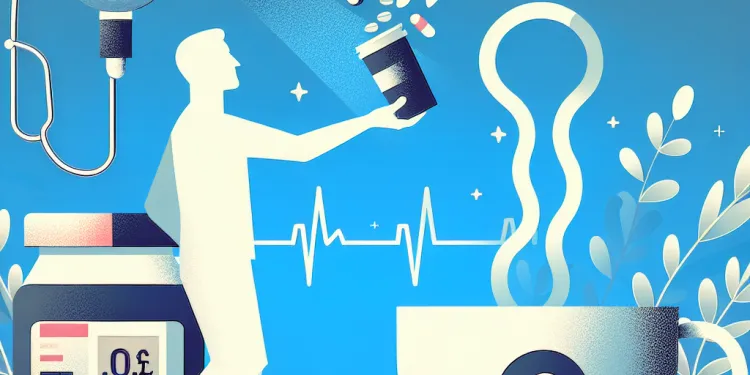
Is it safe to take blood pressure medication with coffee?
Relevance: 71%
-
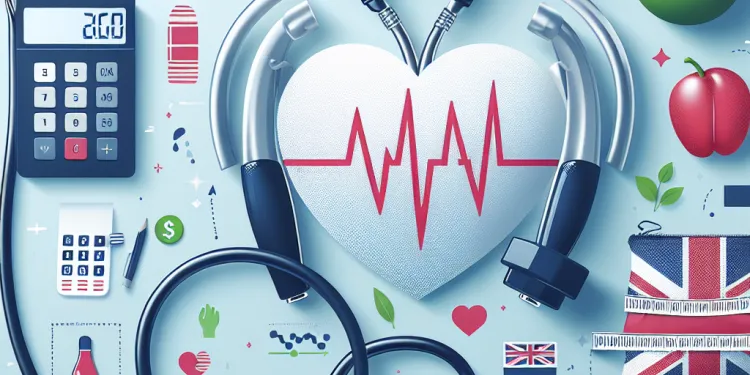
Can weight loss help reduce high blood pressure?
Relevance: 71%
-
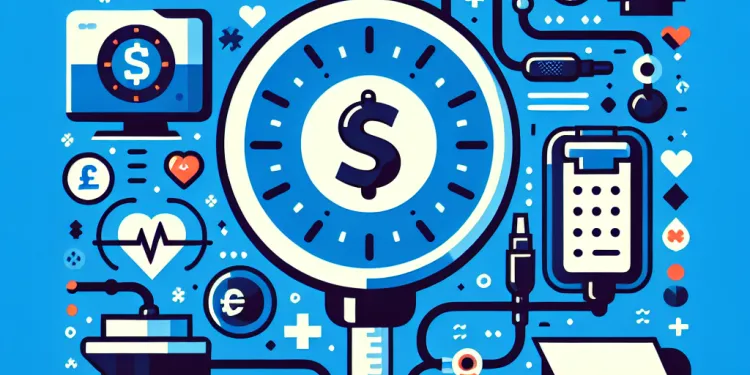
How do medications help control high blood pressure?
Relevance: 71%
-
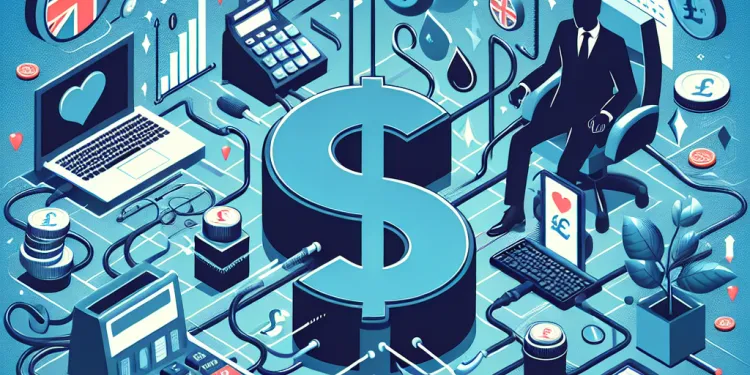
Can stress cause high blood pressure?
Relevance: 70%
-

How does caffeine affect blood pressure?
Relevance: 70%
-
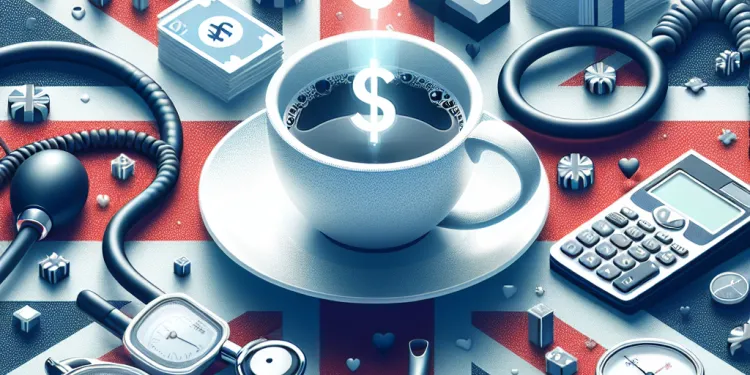
Does caffeine affect blood pressure?
Relevance: 69%
-
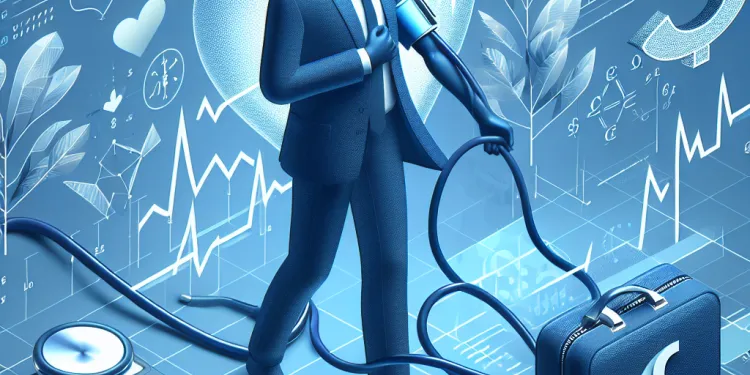
Why is high blood pressure called a 'silent killer'?
Relevance: 69%
-
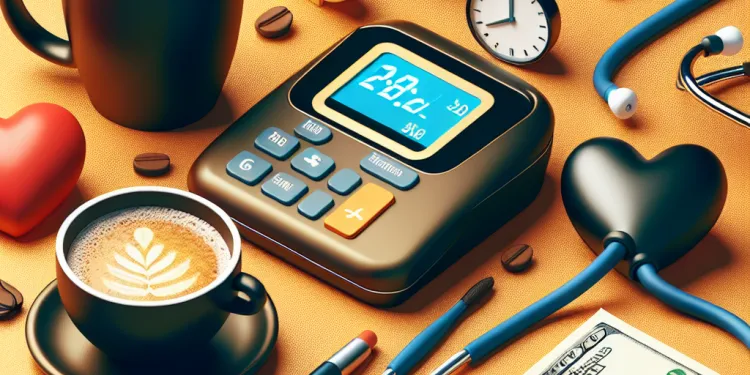
Should people with high blood pressure avoid coffee entirely?
Relevance: 69%
-
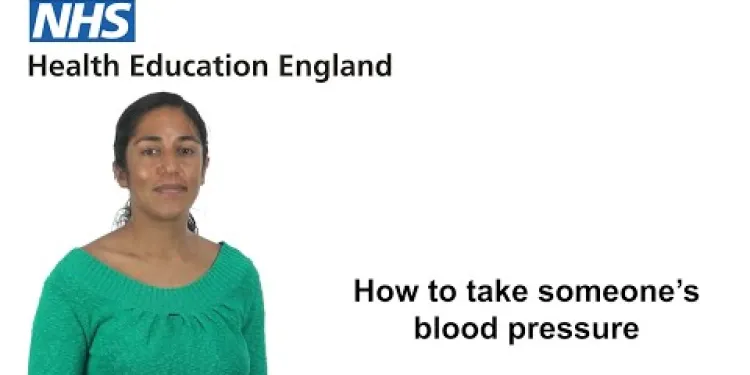
How to take someone's blood pressure
Relevance: 68%
-
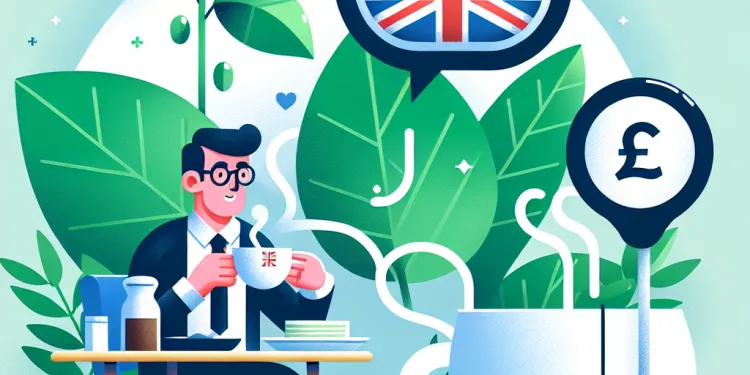
Is green tea a better alternative to coffee for blood pressure management?
Relevance: 67%
-
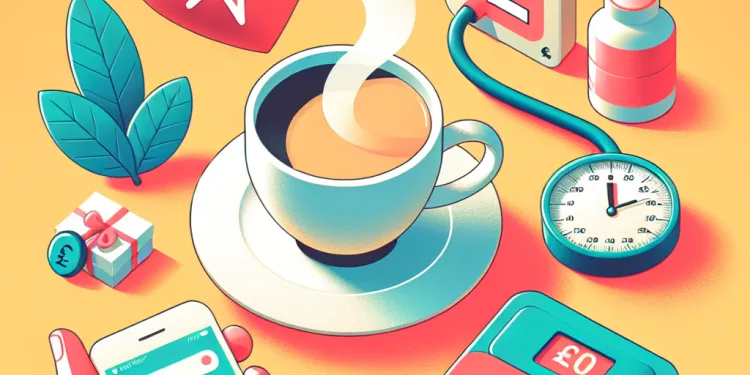
Is Your Morning Coffee a Risk Factor for High Blood Pressure?
Relevance: 66%
-
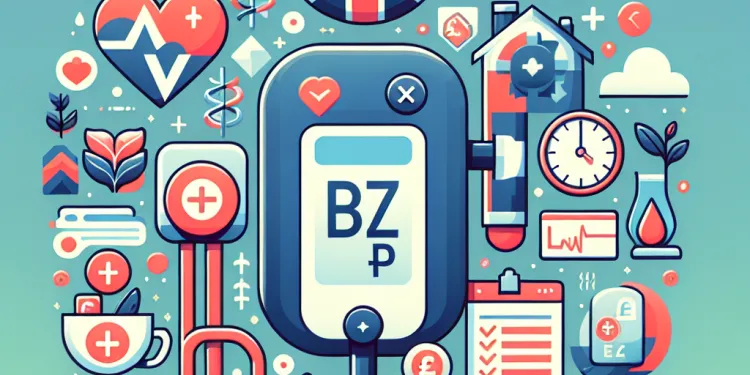
Can high blood pressure lead to other health problems?
Relevance: 66%
-

Are there any other factors in coffee that may affect blood pressure?
Relevance: 65%
-

How can one minimize the impact of coffee on blood pressure?
Relevance: 65%
-

Can decaffeinated coffee affect blood pressure?
Relevance: 65%
-
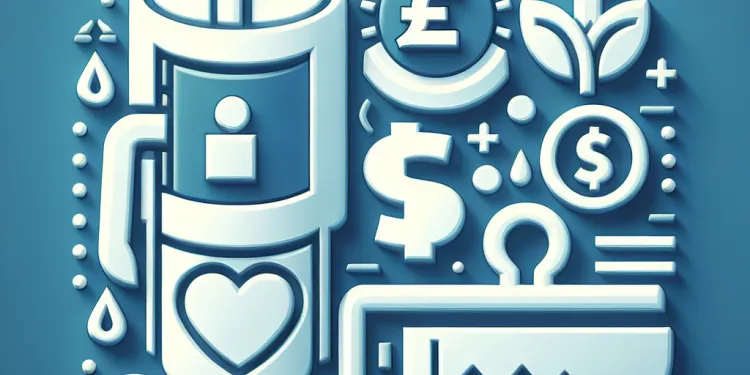
How much caffeine is generally considered safe for people with high blood pressure?
Relevance: 63%
-
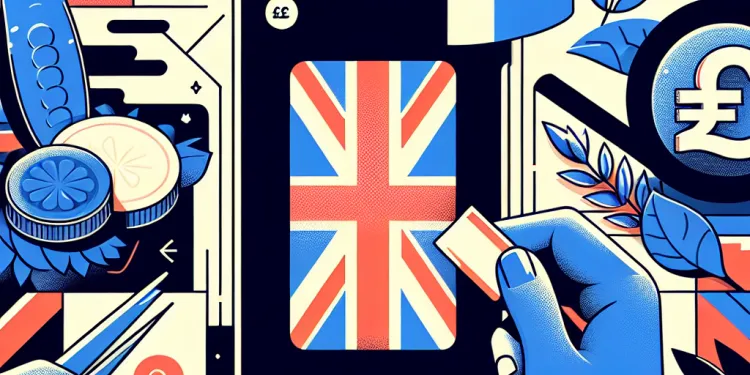
What is the DASH diet?
Relevance: 63%
-
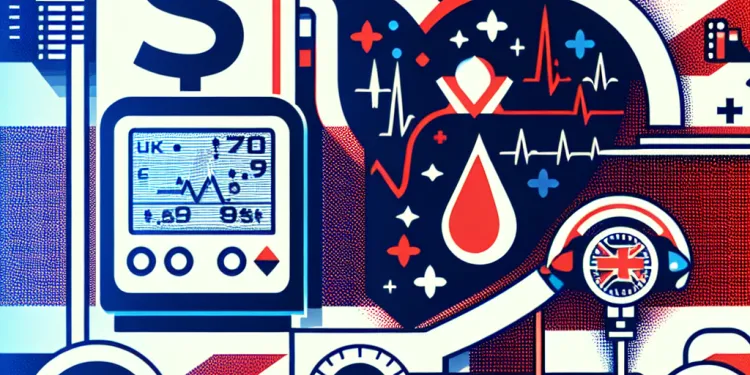
Is high blood pressure hereditary?
Relevance: 61%
-
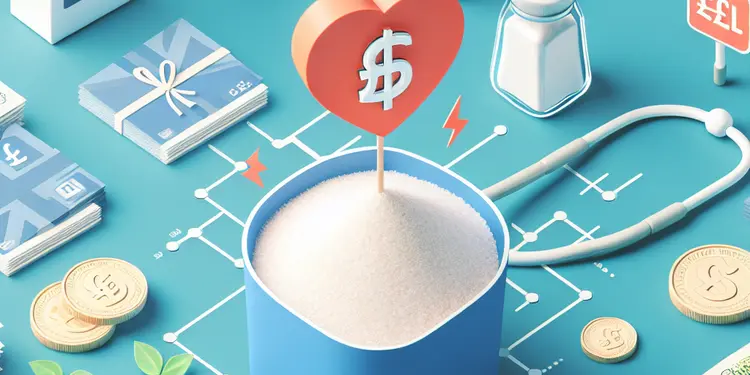
What is the ideal salt intake for someone with high blood pressure?
Relevance: 61%
-

Does drinking coffee every morning increase the risk of developing high blood pressure?
Relevance: 60%
-

How soon after drinking coffee can blood pressure be affected?
Relevance: 60%
-
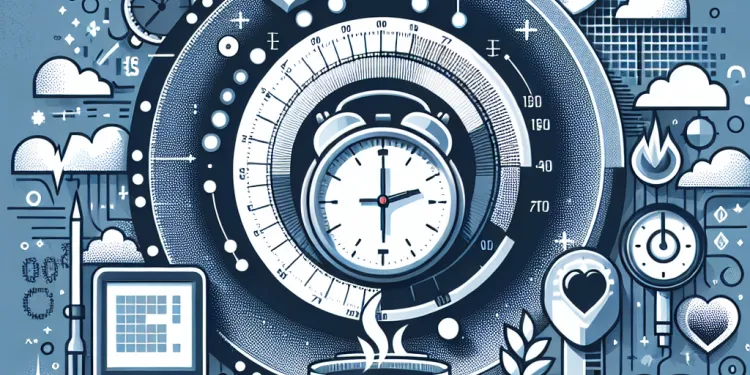
Is there a specific time of day when coffee has the most impact on blood pressure?
Relevance: 60%
-
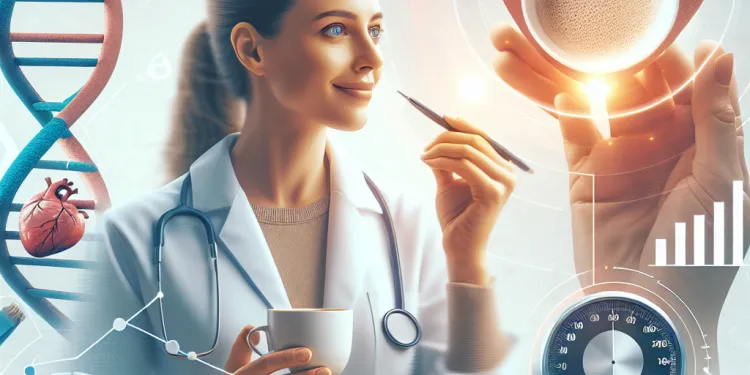
Does genetic makeup affect how coffee impacts blood pressure?
Relevance: 59%
-
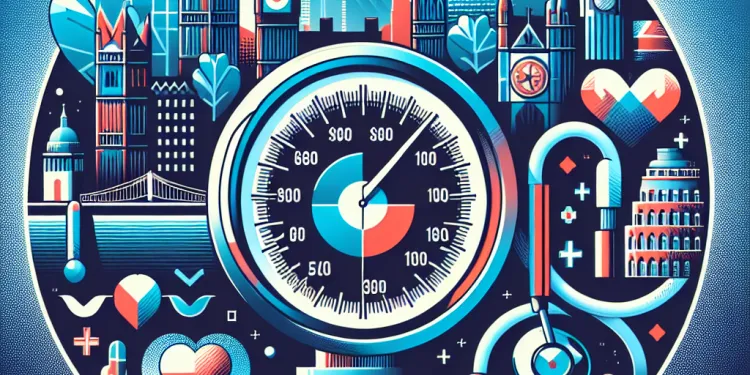
What are normal blood pressure ranges?
Relevance: 58%
-
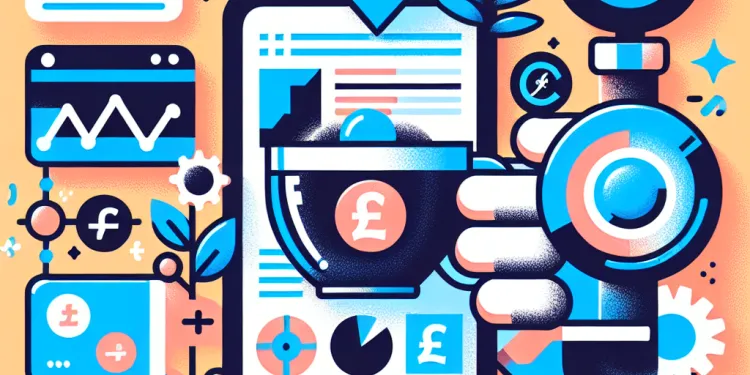
How does regular caffeine consumption impact tolerance and blood pressure?
Relevance: 58%
-
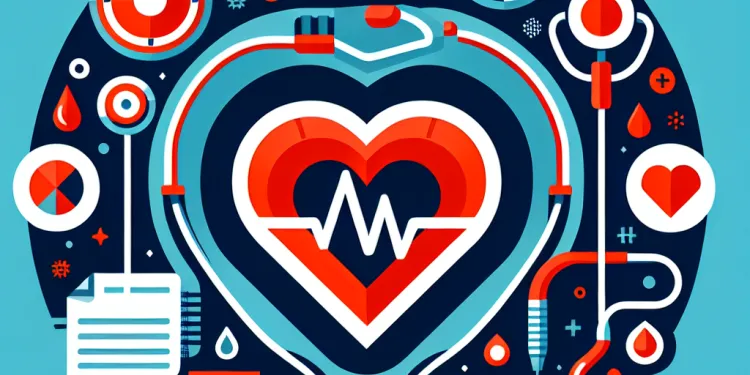
What are the symptoms of high blood pressure?
Relevance: 56%
The Impact of Diet on Blood Pressure
Blood pressure is an essential aspect of cardiovascular health, and diet plays a significant role in influencing it. High blood pressure, or hypertension, is a common condition in the UK, affecting millions. Understanding how diet affects blood pressure can help individuals make informed choices to maintain optimal health.
Sodium and Its Role
One of the primary dietary factors affecting blood pressure is sodium intake. Sodium, found in salt, can lead to the body retaining excess fluid, which increases blood volume and subsequently, blood pressure. In the UK, it's recommended that adults consume no more than 6 grams of salt per day to prevent hypertension.
Potassium to the Rescue
Potassium is a vital mineral that helps balance sodium levels in the body. A diet high in potassium can assist in reducing blood pressure by easing tension in blood vessel walls. Foods rich in potassium include bananas, potatoes, and spinach. Increasing these in your diet may help counteract the negative effects of sodium.
The Role of Fats and Cholesterol
Dietary fats also influence blood pressure. Saturated and trans fats can raise cholesterol levels, leading to clogged arteries and higher blood pressure. Replacing these with unsaturated fats, such as those found in olive oil, nuts, and fish, may improve heart health and lower pressure on arteries.
Fibre for Heart Health
A fibre-rich diet has multiple health benefits, including the potential to lower blood pressure. Soluble fibre, found in oats, beans, and lentils, can reduce cholesterol levels and improve cardiovascular health. Consuming a diet high in whole grains, fruits, and vegetables ensures adequate fibre intake, contributing to better blood pressure management.
Alcohol and Caffeine Considerations
While moderate alcohol consumption might not harm heart health, excessive intake can lead to elevated blood pressure. The NHS advises limiting alcohol to 14 units per week for both men and women. Additionally, caffeine can cause temporary spikes in blood pressure, so moderating caffeinated beverages like coffee and tea is advisable for those with hypertension concerns.
Adopting the DASH Diet
To effectively manage blood pressure, many healthcare professionals recommend the Dietary Approaches to Stop Hypertension (DASH) diet. This eating plan emphasises fruits, vegetables, whole grains, and low-fat dairy, and it significantly limits saturated fats and sugar. Following the DASH diet can lead to noticeable reductions in blood pressure.
Conclusion
In conclusion, diet has a profound impact on blood pressure levels. By making informed dietary choices and focusing on a balanced diet low in sodium and saturated fats but rich in potassium and fibre, individuals in the UK can work towards reducing their risk of hypertension and improving overall heart health.
The Impact of Diet on Blood Pressure
Blood pressure is important for your heart. What you eat can change your blood pressure. Many people in the UK have high blood pressure. Knowing what to eat can help you stay healthy.
Sodium and Its Role
Sodium is in salt. Too much salt can make your body keep extra water. This can raise your blood pressure. Adults in the UK should have no more than 6 grams of salt each day.
Potassium to the Rescue
Potassium is a mineral that helps balance sodium. It can lower blood pressure by making blood vessels less tight. Foods like bananas, potatoes, and spinach have potassium. Eating these foods can help balance the effects of sodium.
The Role of Fats and Cholesterol
Fats in food can affect blood pressure. Bad fats, like saturated and trans fats, can block arteries and raise blood pressure. Replace them with good fats from olive oil, nuts, and fish to help your heart.
Fibre for Heart Health
Eating fibre is good for your heart. Fibre can lower cholesterol and improve heart health. Foods with fibre include oats, beans, lentils, whole grains, fruits, and vegetables. Eating these foods can help control blood pressure.
Alcohol and Caffeine Considerations
A little alcohol is okay, but too much can raise blood pressure. The NHS says not to drink more than 14 units a week. Caffeine, in drinks like coffee and tea, can also raise blood pressure for a short time. So, it's good to have these drinks in moderation if you have high blood pressure.
Adopting the DASH Diet
The DASH diet can help manage blood pressure. This diet includes fruits, vegetables, whole grains, and low-fat dairy. It cuts down on bad fats and sugar. Many people find their blood pressure goes down with the DASH diet.
Conclusion
What you eat matters for your blood pressure. Eating less salt and bad fat, and more potassium and fibre, can help lower the chance of high blood pressure. Making good food choices keeps your heart healthy.
Frequently Asked Questions
What is the connection between diet and blood pressure?
Diet can significantly impact blood pressure, as certain nutrients and foods can either raise or lower it.
Which dietary factors can increase blood pressure?
High sodium intake, excessive alcohol consumption, and diets high in saturated fats can increase blood pressure.
How does sodium affect blood pressure?
Excessive sodium intake can lead to fluid retention, which increases blood volume and, consequently, blood pressure.
Can reducing salt intake lower blood pressure?
Yes, reducing salt intake can help lower blood pressure, especially in individuals who are salt-sensitive.
What foods are high in sodium?
Processed foods, canned soups, salty snacks, and fast foods are typically high in sodium.
Are there any diets recommended for lowering blood pressure?
The DASH diet, which emphasizes fruits, vegetables, whole grains, and lean proteins, is recommended for lowering blood pressure.
How does the DASH diet help with blood pressure?
The DASH diet is low in sodium and rich in nutrients like potassium, calcium, and magnesium, which help lower blood pressure.
What role does potassium play in blood pressure regulation?
Potassium helps balance the amount of sodium in cells and can offset the effects of sodium, thus helping to lower blood pressure.
Which foods are good sources of potassium?
Bananas, sweet potatoes, spinach, and avocados are all good sources of potassium.
How does weight affect blood pressure?
Excess weight can increase blood pressure as the heart has to work harder to pump blood throughout the body.
Can losing weight help lower blood pressure?
Yes, losing even a small amount of weight can help reduce blood pressure in overweight individuals.
Is alcohol consumption related to blood pressure?
Excessive alcohol intake can lead to an increase in blood pressure, so moderation is key.
How can alcohol be consumed responsibly with respect to blood pressure?
Limit alcohol intake to moderate levels, such as one drink per day for women and two for men.
What is the impact of caffeine on blood pressure?
Caffeine can cause short-term increases in blood pressure, but its long-term effects vary between individuals.
How does a high-fat diet affect blood pressure?
A diet high in saturated and trans fats can contribute to weight gain and arterial stiffness, thus raising blood pressure.
Can increasing fiber intake influence blood pressure?
Yes, a diet high in fiber can help reduce blood pressure by improving heart health and aiding weight management.
What are some high-fiber foods that can help lower blood pressure?
Whole grains, fruits, vegetables, beans, and lentils are high in fiber and can help boost heart health.
How does sugar intake relate to blood pressure?
High sugar intake, particularly from sugary drinks and snacks, can lead to weight gain and increase blood pressure.
Are there any dietary supplements that can help manage blood pressure?
Supplements such as omega-3 fatty acids, magnesium, and coenzyme Q10 may help manage blood pressure, but should be taken under medical guidance.
What lifestyle changes alongside diet can help manage blood pressure?
Regular physical activity, stress management, adequate sleep, and avoiding smoking, in conjunction with a healthy diet, can help control blood pressure.
How does food affect blood pressure?
Food can change how high or low your blood pressure is. Some foods might make it go up, and some can help keep it down.
Eating a lot of salty foods can make your blood pressure higher. Fruits and vegetables can help keep your blood pressure healthy.
If you want to check your blood pressure, you can use a special machine. It's called a blood pressure monitor.
Talking to a doctor or nurse can help you learn about foods that are good for your blood pressure.
What we eat can change our blood pressure. Some foods can make it go up, and some can make it go down.
What foods can make blood pressure go up?
Eating too much salt, drinking a lot of alcohol, and eating foods with a lot of bad fats can make your blood pressure go up.
How does salt affect blood pressure?
Sodium is a type of salt that we eat. Eating too much salt can make your blood pressure go up. High blood pressure can make us sick.
To stay healthy, it is good to eat less salt. Here are some ways to eat less salt:
- Check food labels to pick foods with less salt.
- Use herbs and spices instead of salt to add flavor to your food.
- Try to eat more fresh foods like fruits and vegetables.
If you need help, ask an adult or a doctor for more advice on how to eat less salt.
Eating too much salt can make your body hold extra water. This makes more blood in your body, which raises your blood pressure.
Does eating less salt help lower blood pressure?
Yes, eating less salt can help make your blood pressure lower. This is very true for people who are sensitive to salt.
What foods have a lot of salt?
Foods that are made in factories, like canned soups, salty snacks, and fast foods, usually have a lot of salt.
What foods can help lower high blood pressure?
Eating certain foods can help people with high blood pressure feel better. Try these tips:
- Eat more fruits and vegetables.
- Choose whole grains, like brown bread and brown rice.
- Eat less salt. Try spices to add flavor to food.
- Drink water instead of sugary drinks.
It can be helpful to talk to a doctor or nutritionist. They can give you more advice on healthy eating. There are also apps and websites that can help you choose good foods.
The DASH diet helps you keep your blood pressure low. It tells you to eat lots of fruits, vegetables, whole grains, and lean meats.
How does the DASH diet help with blood pressure?
The DASH diet helps lower blood pressure. It works by using food. The DASH diet means eating lots of fruits, vegetables, and whole grains. It also means eating less salt, sweets, and red meats. This helps the heart stay healthy.
Here are some tips to make it easier:
- Eat more fruits and veggies every day.
- Choose whole grain foods like brown rice and oatmeal.
- Try not to eat too much salty food. Look for low-salt foods.
Ask for help from a grown-up if you need it. They can help you choose good foods. Use pictures of foods to help you remember. You can also use apps that help you plan meals. These things can make it easier.
The DASH diet is a way of eating that helps keep your blood pressure healthy. It has low salt and lots of good things like potassium, calcium, and magnesium.
How does potassium help control blood pressure?
Your body needs potassium to keep your blood pressure healthy. Potassium is a mineral that helps blood move through your body. If your blood moves too fast, it can hurt your heart. Eating foods with potassium, like bananas and potatoes, can help keep your blood pressure just right.
Here are some helpful tools to learn more:
- Read books about healthy eating.
- Watch videos with simple explanations.
- Ask a grown-up to tell you more about potassium.
Potassium is a mineral. It helps keep sodium levels in our cells balanced. This can help lower blood pressure.
If you need extra help to remember this, you can use pictures or diagrams. Talking to someone about it can also help.
What foods have a lot of potassium?
Bananas, sweet potatoes, spinach, and avocados all have lots of potassium. Potassium is good for you.
How does weight change blood pressure?
What does it mean: Weight is how heavy you are. Blood pressure is how strong your blood pushes in your body.
What happens: If you are very heavy, it can make your heart work harder. This can make your blood pressure go up.
Why it matters: High blood pressure is not good for your heart. It can make you feel unwell.
How to help: Eating healthy foods and moving your body can help keep your weight and blood pressure good.
Helpful tools: Use a chart to track your weight. Ask a grown-up to help you measure your blood pressure.
Being overweight can make your blood pressure go up. This is because your heart has to work harder to move blood around your body.
Can getting thinner make your blood pressure lower?
If you lose weight, it might help your blood pressure go down.
Here is how it works:
- Your heart does not have to work so hard.
- Your body stays healthier.
Tips to help:
- Eat healthy foods like fruits and vegetables.
- Stay active by playing or taking walks.
- Ask a grown-up for help if you need it.
Yes, if you lose a little bit of weight, it can help lower your blood pressure if you are overweight.
Does drinking alcohol affect blood pressure?
When you drink alcohol, can it change your blood pressure? Blood pressure is how hard your blood pushes against your veins.
If you are wondering about this, it might help to talk with a doctor or nurse. They can give you good advice.
To help understand more, you can:
- Look at simple charts or pictures
- Use apps that explain things with easy words
- Ask someone you trust to explain it to you
Drinking too much alcohol can make your blood pressure go up. It is important to drink less to stay healthy.
How to Drink Alcohol Safely for Your Blood Pressure
Alcohol is a drink like beer, wine, or liquor. It can change how you feel. It is important to drink alcohol safely, especially if you have blood pressure problems.
Here are some tips to help you:
- Only drink a little bit. Too much is not safe.
- Drink slowly. Take your time.
- Eat food when you drink. This helps keep you safe.
- Ask a doctor if alcohol is okay for you.
- If you don’t feel good after drinking, tell someone.
These tips can help you enjoy alcohol without worrying about your blood pressure. Remember, it’s okay to not drink alcohol if you don’t want to.
Using a friends or family member to help you understand alcohol and its effects can be helpful.
Try not to drink too much alcohol. Women should have one drink a day. Men should have two drinks a day.
How does caffeine change blood pressure?
Caffeine can make your blood pressure go up for a little while, but it affects everyone differently over time.
How does eating lots of fatty foods change blood pressure?
Eating a lot of fatty foods might change how your heart works. Here is what can happen: - Fatty foods can make blood pressure go up. - When blood pressure is high, it can make the heart work too hard. - This can sometimes lead to health problems. If you want to learn more: - Ask a doctor or nurse for help. - Use easy-to-read health books or websites. - Look for videos that explain things simply. Remember, it is important to eat a balanced diet.Eating too many foods with bad fats (like saturated and trans fats) can make you gain weight and make your blood vessels stiff. This can cause high blood pressure.
Can eating more fiber change blood pressure?
Eating foods with fiber, like fruits and vegetables, might help your heart.
Fiber can make your blood pressure better. Blood pressure is how hard your heart works to move blood.
If you want to eat more fiber, try adding foods like beans, fruits, and whole grains.
You can use apps or talk to a helper to track how much fiber you eat.
Eating foods with lots of fiber is good for your heart and can help lower blood pressure. It also helps you stay at a healthy weight.
What foods with lots of fiber can help lower blood pressure?
Eating foods with fiber is good for you. Fiber can help keep your blood pressure healthy. Here are some foods that have lots of fiber:
- Fruits like apples, bananas, and oranges
- Vegetables such as carrots, broccoli, and green beans
- Whole grains like brown rice, oats, and whole-grain bread
- Beans and lentils
- Nuts and seeds
Try eating these foods often to help keep your blood pressure healthy. Remember to drink water and exercise regularly too.
Whole grains, fruits, vegetables, beans, and lentils have lots of fiber. Fiber is good for your heart.
How does eating sugar affect blood pressure?
Eating a lot of sugar can make your blood pressure go up. Blood pressure is how hard your blood pushes inside your body. It is important to keep it healthy and not too high.
If you are worried or want to know more, you can:
- Talk to a doctor or nurse.
- Use picture books or videos to learn.
- Ask an adult to help explain things.
Eating too much sugar, especially from sweet drinks and snacks, can make you gain weight and make your blood pressure go up.
Do any pills or vitamins help control blood pressure?
Some special vitamins and minerals can help with blood pressure. These include omega-3, magnesium, and coenzyme Q10. It is important to talk to a doctor before taking them.
What can you do besides eating well to help with blood pressure?
Eating healthy is important, but there are other things you can do to help with blood pressure too. Here are some easy tips:
- Move your body: Try to play, walk, or exercise every day. It helps your heart.
- Relax: Take deep breaths or do something you enjoy to feel calm.
- Sleep well: Make sure you get enough sleep each night.
You can also try using apps that remind you to move or breathe deeply. They can help make these habits easier.
Doing exercise, sleeping well, staying calm, and not smoking can help keep your blood pressure healthy. Eating good food helps too.
Useful Links
This website offers general information and is not a substitute for professional advice.
Always seek guidance from qualified professionals.
If you have any medical concerns or need urgent help, contact a healthcare professional or emergency services immediately.
- Ergsy carfully checks the information in the videos we provide here.
- Videos shown by Youtube after a video has completed, have NOT been reviewed by ERGSY.
- To view, click the arrow in centre of video.
- Most of the videos you find here will have subtitles and/or closed captions available.
- You may need to turn these on, and choose your preferred language.
- Go to the video you'd like to watch.
- If closed captions (CC) are available, settings will be visible on the bottom right of the video player.
- To turn on Captions, click settings .
- To turn off Captions, click settings again.
More Items From Ergsy search
-

How does diet affect blood pressure?
Relevance: 100%
-

What is high blood pressure?
Relevance: 83%
-

What causes high blood pressure?
Relevance: 80%
-

Can high blood pressure be prevented?
Relevance: 80%
-

Seven Reaasons For Measuring blood pressure
Relevance: 78%
-

What lifestyle changes can lower blood pressure?
Relevance: 75%
-

Should I test my child for high blood pressure?
Relevance: 75%
-

How can high blood pressure be treated?
Relevance: 75%
-

What is the role of potassium in managing blood pressure?
Relevance: 74%
-

How does salt impact blood pressure?
Relevance: 74%
-

How often should I check my blood pressure?
Relevance: 73%
-

Blood pressure too high? Living with hypertension animation
Relevance: 72%
-

What are the risks of having high blood pressure?
Relevance: 72%
-

How is high blood pressure diagnosed?
Relevance: 72%
-

Is it safe to take blood pressure medication with coffee?
Relevance: 71%
-

Can weight loss help reduce high blood pressure?
Relevance: 71%
-

How do medications help control high blood pressure?
Relevance: 71%
-

Can stress cause high blood pressure?
Relevance: 70%
-

How does caffeine affect blood pressure?
Relevance: 70%
-

Does caffeine affect blood pressure?
Relevance: 69%
-

Why is high blood pressure called a 'silent killer'?
Relevance: 69%
-

Should people with high blood pressure avoid coffee entirely?
Relevance: 69%
-

How to take someone's blood pressure
Relevance: 68%
-

Is green tea a better alternative to coffee for blood pressure management?
Relevance: 67%
-

Is Your Morning Coffee a Risk Factor for High Blood Pressure?
Relevance: 66%
-

Can high blood pressure lead to other health problems?
Relevance: 66%
-

Are there any other factors in coffee that may affect blood pressure?
Relevance: 65%
-

How can one minimize the impact of coffee on blood pressure?
Relevance: 65%
-

Can decaffeinated coffee affect blood pressure?
Relevance: 65%
-

How much caffeine is generally considered safe for people with high blood pressure?
Relevance: 63%
-

What is the DASH diet?
Relevance: 63%
-

Is high blood pressure hereditary?
Relevance: 61%
-

What is the ideal salt intake for someone with high blood pressure?
Relevance: 61%
-

Does drinking coffee every morning increase the risk of developing high blood pressure?
Relevance: 60%
-

How soon after drinking coffee can blood pressure be affected?
Relevance: 60%
-

Is there a specific time of day when coffee has the most impact on blood pressure?
Relevance: 60%
-

Does genetic makeup affect how coffee impacts blood pressure?
Relevance: 59%
-

What are normal blood pressure ranges?
Relevance: 58%
-

How does regular caffeine consumption impact tolerance and blood pressure?
Relevance: 58%
-

What are the symptoms of high blood pressure?
Relevance: 56%


